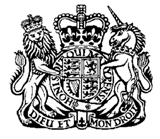- Latest available (Revised)
- Original (As enacted)
Calendar (New Style) Act 1750
You are here:
- Show Geographical Extent(e.g. England, Wales, Scotland and Northern Ireland)
- Show Timeline of Changes
More Resources
Changes to legislation:
There are currently no known outstanding effects for the Calendar (New Style) Act 1750, Introductory Text.![]()
Changes to Legislation
Revised legislation carried on this site may not be fully up to date. At the current time any known changes or effects made by subsequent legislation have been applied to the text of the legislation you are viewing by the editorial team. Please see ‘Frequently Asked Questions’ for details regarding the timescales for which new effects are identified and recorded on this site.
Calendar (New Style) Act 1750
1750 CHAPTER 23 24 Geo 2
F1An Act for regulating the Commencement of the Year, and for correcting the Calendar now in use.
Whereas the legal supputation of the year of our Lord in England, according to which the year beginneth on the twenty-fifth day of March, hath been found by experience to be attended with divers inconveniences, not only as it differs from the usage of neighbouring nations, but also from the legal method of computation in Scotland, and from the common usage throughout the whole kingdom, and thereby frequent mistakes are occasioned in the dates of deeds and other writings, and disputes arise therefrom: And whereas the calendar now in use throughout all his Majesty’s British dominions, commonly called The Julian Calendar, hath been discovered to be erroneous, by means whereof the vernal or spring equinox, which at the time of the general council of Nice in the year of our Lord three hundred and twenty-five happened on or about the twenty-first day of March, now happens on the ninth or tenth day of the same month; and the said error is still increasing, and if not remedied would in process of time occasion the several equinoxes and solstices to fall at very different times in the civil year from what they formerly did, which might tend to mislead persons ignorant of the said alteration: And whereas a method of correcting the calendar in such manner as that the equinoxes and solstices may for the future fall nearly on the same nominal days on which the same happened at the time of the said general council hath been received and established, and is now generally practised by almost all other nations of Europe: And whereas it will be of general convenience to merchants and other persons corresponding with other nations and countries, and tend to prevent mistakes and disputes in or concerning the dates of letters and accounts, if the like correction be received and established in his Majesty’s dominions:
Textual Amendments
F1Act repealed in so far as it requires the observance of January 30, May 29, October 23 and November 5 by the Act 22 Vict. c. 2
Modifications etc. (not altering text)
C1Short title given by Short Titles Act 1896 (c. 14)
C2Act amended (prosp.) by Easter Act 1928 (c. 35), ss. 1, 2(2)
C3Act amended by 25 Geo. 2. c. 30.
Options/Help
Print Options
PrintThe Whole Act
PrintThis Introductory Text only
Legislation is available in different versions:
Latest Available (revised):The latest available updated version of the legislation incorporating changes made by subsequent legislation and applied by our editorial team. Changes we have not yet applied to the text, can be found in the ‘Changes to Legislation’ area.
Original (As Enacted or Made): The original version of the legislation as it stood when it was enacted or made. No changes have been applied to the text.
See additional information alongside the content
Geographical Extent: Indicates the geographical area that this provision applies to. For further information see ‘Frequently Asked Questions’.
Show Timeline of Changes: See how this legislation has or could change over time. Turning this feature on will show extra navigation options to go to these specific points in time. Return to the latest available version by using the controls above in the What Version box.
More Resources
Access essential accompanying documents and information for this legislation item from this tab. Dependent on the legislation item being viewed this may include:
- the original print PDF of the as enacted version that was used for the print copy
- lists of changes made by and/or affecting this legislation item
- confers power and blanket amendment details
- all formats of all associated documents
- correction slips
- links to related legislation and further information resources
Timeline of Changes
This timeline shows the different points in time where a change occurred. The dates will coincide with the earliest date on which the change (e.g an insertion, a repeal or a substitution) that was applied came into force. The first date in the timeline will usually be the earliest date when the provision came into force. In some cases the first date is 01/02/1991 (or for Northern Ireland legislation 01/01/2006). This date is our basedate. No versions before this date are available. For further information see the Editorial Practice Guide and Glossary under Help.

